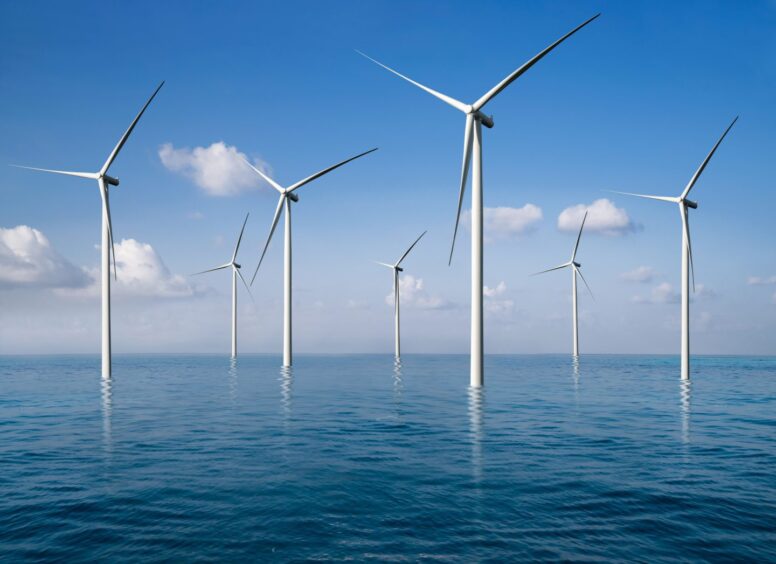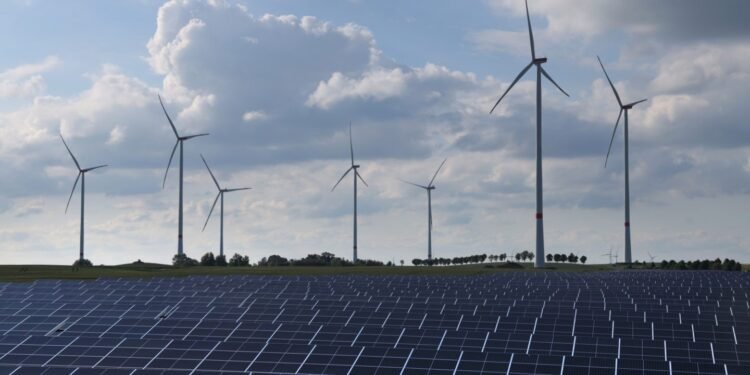Time is running out for the world to reach net zero, with the halfway point having been reached in a make-or-break decade, a new report has warned.
But the world can still meet the goals of the Paris Agreement, holding global warming to below two degrees Celsius and achieve net zero by mid-century if the world sees an “immediate peak and decline in emissions,” research provider BloombergNEF said.
Despite clean technology deployment accelerating and capital investment surging to record levels, the world still has to numerous actions it must take to reach net zero, according to the group’s New Energy Outlook 2024.
Failure to take appropriate action risks putting even a 1.75C global warming target out of reach.
Head of economics and modelling at BNEF and the lead author of the report David Hostert said: “The path to staying well below two degrees is narrowing.
“In the 18 months since we last updated our global scenarios, the energy transition has certainly accelerated – but not nearly enough. This report should serve as a wake-up call: we need a rapid decline in emissions starting from now – not in five years’ time – if net zero by mid-century is to remain a possibility.”
Two scenarios
The report outlines two scenarios, an economic transition scenario (ETS), charting how the transition could unfold without any new policy actions, and a net zero scenario (NZS), where countries take action to meet the goals of the Paris Agreement.
The ETS sees global emissions fall by 27% from current levels by 2050and halve compared to what would happen if progress on decarbonisation simply halts at present conditions.
Under this scenario, global renewables capacity will more than double by 2030 and quadruple by 2050, from current levels.
This will see fossil fuel usage fall below a 50% share of global electricity supplies at the end of this decade, with usage down 22% by 2030 versus current levels, and 39% by 2050.
Renewables overtake fossil fuels to reach 51% of power supply in 2030, 63% in 2040 and 70% in 2050.
Global electricity demand in the ETS will grow by over 70% from 2023 to just over 43,000TWh in 2050.

However, global temperatures are still liable to rise 2.6 degrees Celsius above pre-industrial levels by 2100 under the ETS.
The NZS would allow the world to stay under the two-degree-Celsius mark but is subject to a tight timeframe.
To achieve this scenario, an immediate peak and decline in emissions from all sectors will need to come this year.
In addition, power sector emissions must plunge by 93% by 2035 and fossil fuel usage needs to peak and fall, with oil demand dropping by 75% by 2050, coal consumption by nearly two-thirds, and gas use halved.
In its place, renewable energy needs to triple by 2030 to 11TW, followed by another doubling to 2040.
The report noted that reaching net zero will require considerable investment, with the fully decarbonised global energy system envision in the NZS costing $215 trillion by 2050.
However, this is only 19% more than the ETS scenario, which would cost $181tn.
However, the report added that regardless of which path the world follows, fossil fuels usage is set to fall. Under the more conservative ETS scenario, renewables could still cross a 50% share of electricity generation at the end of this decade.
Key technologies
While existing technologies can help get the world to net zero, they need to be urgently deployed.
BloombergNEF identified nine existing technologies that will be key to helping the world reach net zero by 2050.
However, only four of these – electric vehicles, renewable power, energy storage and power grids – are mature, commercially scalable technologies with proven business models.
These still require a significant acceleration to get on track for net zero, but the group said that there is minimal technology risk associated with them, economic premiums are small or non-existent, and financing models are already at scale.
In contrast, nuclear, CCS, hydrogen, sustainable aviation fuels and heat pumps are not currently cost-competitive or commercially scaling up.
Each of these technologies must scale rapidly to achieve the trajectories laid out in the NZS.
In particular, global renewable energy capacity will need to triple by 2030, a full global phase-out of combustion engine vehicle sales by 2034 is needed, along with a major scale-up of carbon capture technology, energy storage and nuclear power before 2030, are all needed to reach this scenario.
Cleaning up the power sector accounts for almost half of emissions avoided between today and 2050, compared with a no-transition scenario where there is no further action on decarbonisation.
Electrification of end-use sectors, including road transport, buildings and industry, accounts for the next quarter of emissions.
The solutions needed to abate the remaining quarter of emissions are among the most challenging to scale – biofuels in shipping and aviation; hydrogen in industry and transport; and carbon capture and storage in industry and power.
Recommended for you




 © Shutterstock / wasanajai
© Shutterstock / wasanajai






